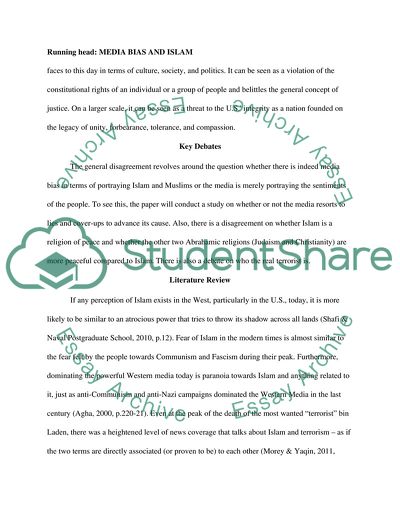Cite this document
(“Does Media Bias Cause Islam to be Misunderstood Research Paper”, n.d.)
Retrieved from https://studentshare.org/english/1595731-week-15
Retrieved from https://studentshare.org/english/1595731-week-15
(Does Media Bias Cause Islam to Be Misunderstood Research Paper)
https://studentshare.org/english/1595731-week-15.
https://studentshare.org/english/1595731-week-15.
“Does Media Bias Cause Islam to Be Misunderstood Research Paper”, n.d. https://studentshare.org/english/1595731-week-15.


